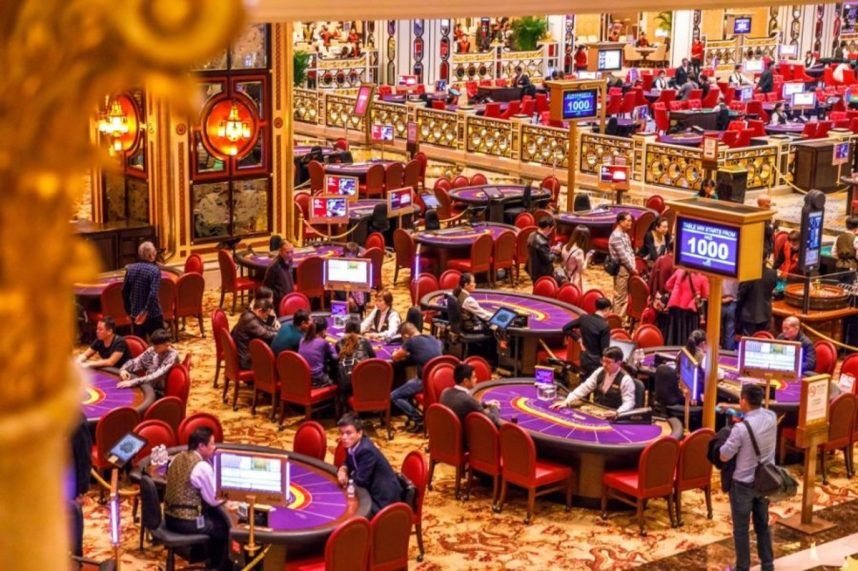Macau Casinos Win $22.7B in 2023, Trigger Nongaming Investment Increase

Posted on: January 1, 2024, 09:59h.
Last updated on: January 1, 2024, 09:59h.
The Macau gaming industry capped off its first COVID-19 recovery year strong with December casino win exceeding analyst expectations.

Gross gaming revenue (GGR) in the Chinese enclave totaled MOP18.57 billion (US$2.3 billion) to end 2023, surpassing the analyst consensus forecast of $2.1 billion.
2023 marked the start of the region’s pandemic recovery after China President Xi Jinping ended “zero-COVID” in late 2022. The directive’s ending allowed life to begin returning to normal in the world’s second most populated country more than three years after the coronavirus is thought to have originated on the mainland.
December brought full-year casino win to MOP183 billion (US$22.7 billion). The gaming income for the six commercial casino operators represents a 334% year-over-year surge and a 111% increase on 2021.
However, Macau casinos last year won only 62.6% of the money that the same six operators fielded in pre-pandemic 2019 when GGR totaled $36.3 billion.
The market has changed considerably since the onset of the pandemic after Alvin Chau, the former face of the junket industry who became a billionaire running Suncity Group, was successfully prosecuted on gambling crimes, fraud, and money laundering and sentenced to 18 years in prison. Following Chau’s 2021 arrest, many VIP groups that had brought mainland high rollers to the tax haven gambling mecca closed up shop on fears of being similarly targeted.
Macau’s prosecution came as a direct order from Beijing, which concluded that such VIP junket organizers were essentially helping wealthy mainlanders launder money through the Special Administration Region’s high-end casino resorts.
Good and Bad Outcome
In December 2022, Macau’s six casino firms — Sands, Galaxy, MGM, Wynn, SJM, and Melco — received new 10-year gaming licenses in exchange for a pledge that they would collectively invest at least MOP118.8 billion (US$14.72 billion) into their resorts. Over 90%, or about $13.5 billion, must be allocated to non-gaming projects.
At the direction of Beijing, Macau is trying to diversify its economy with new lures to complement its casino market. The 2022 concession agreement included a provision that increases the non-gaming requirement by 20% if the six casino operators win at least MOP180 billion (US$22.3) billion in a given year through 2027.
Since 2023 GGR totaled over $22.7 billion, the casinos now have an additional non-gaming investment requirement of $4.48 billion to bring the total non-gaming commitment to nearly $18 billion.
In November, Macau Chief Executive Ho Iat Seng bizarrely said the casinos wouldn’t meet the non-gaming trigger threshold despite being nearly on track to do so.
I can tell you that this [$22.3 billion] figure is impossible,” Ho bewilderedly declared.
Before the pandemic, Macau casino win in 2019 totaled $36.5 billion.
Casinos Expected Increase
Though it certainly wasn’t a sure thing this year, as a robust December fueled by a strong Christmas holiday propelled gaming past expectations in the final month of the year, Macau casinos presumably budgeted for the non-gaming increase. If the $22.5 billion threshold hadn’t been met this year, the industry must be confident that such a brink would be eclipsed in a given year by 2027.
The non-gaming spending mandates were broken down based on 2022 market share. Before the triggered increase, Sands was on the hook for $3.46 billion, Galaxy for $3.42 billion, Wynn for $2.05 billion, MGM for $1.87 billion, SJM for $1.5 billion, and Melco for $1.24 billion.
Source: casino.org
